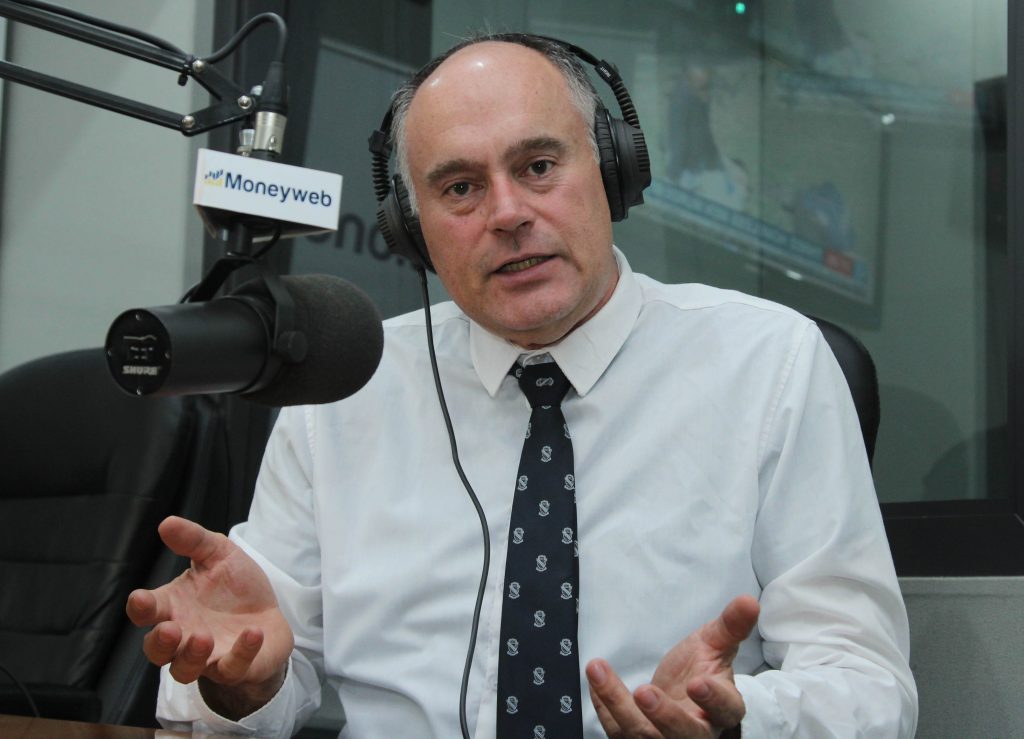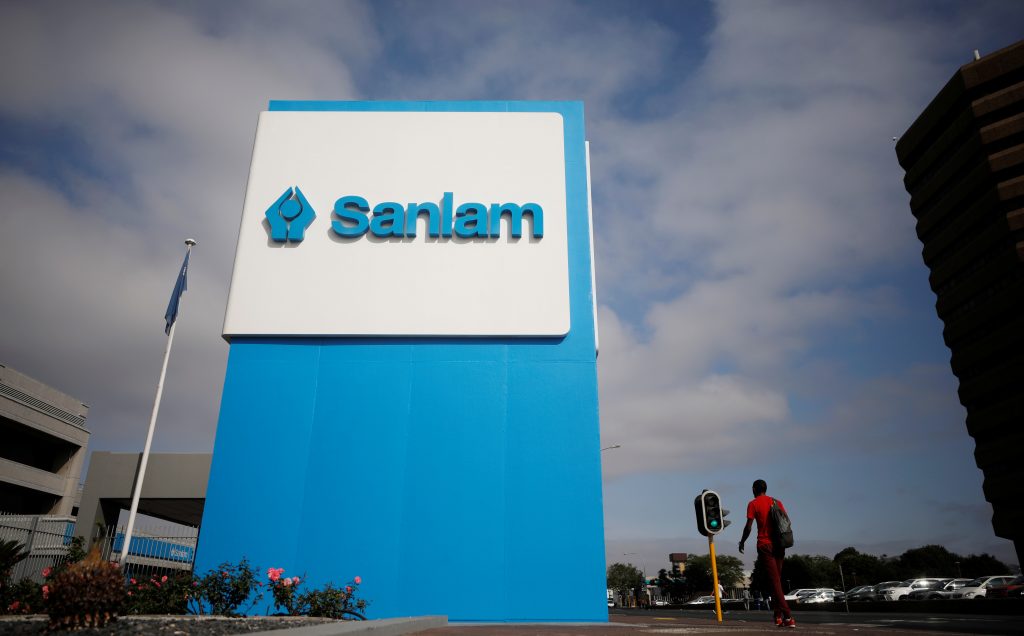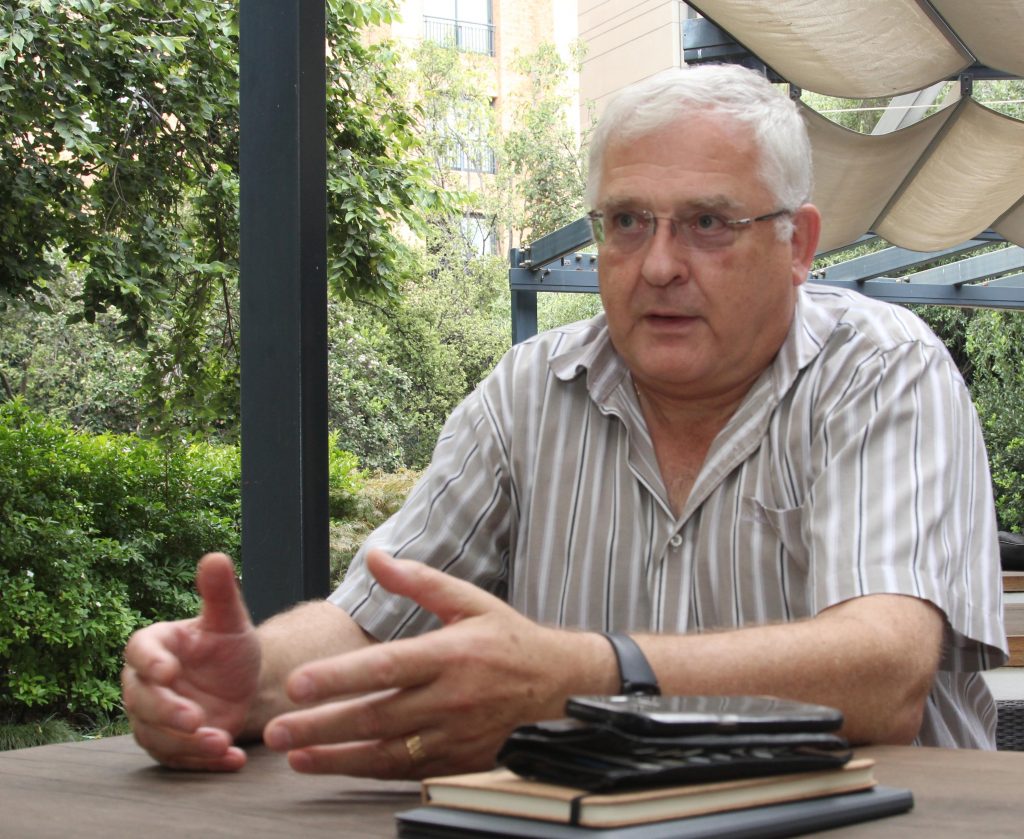You can also listen to this podcast on iono.fm here.
In this episode of Mandates & Megaphones, Jeremy Maggs speaks to Tanya van Meelis, head of policy at Cosatu, and Riefdah Ajam, general secretary of Fedusa, about whether the world’s most powerful economies can meaningfully align social justice with economic coordination – or if the gap between promises and delivery is widening.
With the G20 Labour and Employment Ministers’ meeting looming, both leaders outline why workers’ voices must help shape the global agenda – from artificial intelligence and climate transition, to inequality and fair taxation.
Read:
South Africa’s G20 test: Turning the presidency into power
From dependency to power player: How Africa can rewrite its future
A broader agenda for labour beyond the shop floor
Van Meelis emphasised that labour’s priorities extend far beyond immediate workplace issues. While jobs and worker protections remain fundamental, unions are also pressing for systemic reforms – such as tax justice, fairer debt arrangements for developing countries, and stronger regulation of global capital flows.
“Workers can’t just look at the shop floor because we know that global developments impact us as well… Labour is inserting its voice to ensure that we impact the wider agenda beyond shop floor issues,” said Van Meelis.
Ajam reinforced this, calling for a new trade model that both defends labour rights and respects national sovereignty. She said that social protection and investment in just transition strategies must lie at the heart of global industrial policy.
Decent work as the foundation for equality
Both leaders placed the principle of decent work at the centre of labour’s demands. Ajam pointed to the precariousness faced by workers in the platform and gig economy, highlighting the erosion of social protections and benefits.
“Our blood, sweat and tears have built many economies, but at the same time, we are not being extended the fruits of those labour… workers are being exploited at all levels,” said Ajam.
Van Meelis added that without the recognition of trade unions, the right to strike, and collective bargaining, no country can credibly claim to promote decent work. She drew a direct link between employment, social protection, workers’ rights and social dialogue – calling out the hypocrisy of some G20 countries that publicly endorse labour principles while suppressing unions domestically.
Technology, artificial intelligence and worker protection
The rise of artificial intelligence was a recurring concern. Van Meelis warned that AI is already being implemented at factory-floor level without union input, reshaping how workers are monitored, disciplined, and even retrenched. She stressed that unions must be part of policy conversations to harness AI’s benefits while limiting its risks.
“AI is marching on for all of us, whether we like it or not. The question is to make sure we are aware of the potential positive impacts and… have serious discussions about how to mitigate the negative impacts,” said Van Meelis.
Ajam went further, describing AI as a fundamental reconfiguration of workplace control, with algorithms replacing human decisions on recruitment, scheduling, and performance management. She called for transparency, worker consultation, and binding collective bargaining provisions on technological change.
“We believe that a digital future that does not embed fairness will only deepen existing inequalities,” said Ajam.
Global solidarity and Africa’s voice at the G20
Both guests underlined the importance of unity among trade unions – not only within South Africa but across Africa and globally. Van Meelis explained how South African federations worked to bring other African unions into G20-related processes, raising funding and organising workshops to amplify regional concerns.
“We made sure that workers and unions from Africa were heard and our concerns were articulated,” said Van Meelis.
Ajam insisted that global solidarity is gaining traction, with unions across continents recognising that attacks on collective bargaining or social protection in one country reverberate everywhere.
“The principle of ‘an injury to one is an injury to all’ has been resonating… we cannot afford to be divided when capital finds new ways of enhancing profit share,” said Ajam.
Economic justice through fair taxation and trade
Finally, the conversation turned to the economic underpinnings of labour’s demands. Van Meelis argued for wealth taxes and financial transaction taxes as a means to address inequality and provide governments with the necessary resources for education, healthcare, and social protection. She also stressed the importance of value-added production and protective trade measures to safeguard domestic jobs.
“We desperately need new sources of funds… taxing the super wealthy is essential to ensure that we have education and healthcare and the services that government is supposed to provide,” Van Meelis
Ajam linked this to the African Continental Free Trade Agreement, positioning it as an opportunity for South Africa to drive re-industrialisation and break the cycle of exporting raw commodities while importing poverty.
“South Africa is an exporter of commodities – ultimately wealth – but we import poverty because we have to buy the finished products. We must change that dynamic to bring back social justice,” said Ajam.
Read:
Johannesburg showdown: Can Brics bend the G20 to its will?
B20/G20: Can business speak for Africa and be believed?
Trump still wants to skip G20 Summit, citing rift with SA
The discussion made clear that, for labour, the future of work is not just about technology – it is about dignity, inclusion and fairness. Both van Meelis and Ajam stressed that workers must not be excluded from decisions shaping the global economy.
Whether on AI regulation, climate transition, or wealth taxation, labour movements are determined to ensure their demands are heard and implemented at the G20 and beyond.
The Mandates & Megaphones podcast will be published weekly on Mondays until the summit concludes in late November.Listen on Spotify, iTunes, and other popular platforms or download the Moneyweb app to stay informed – anytime, anywhere.
This feature was brought to you by the Standard Bank Group.

 3 days ago
1
3 days ago
1






















 English (US) ·
English (US) ·